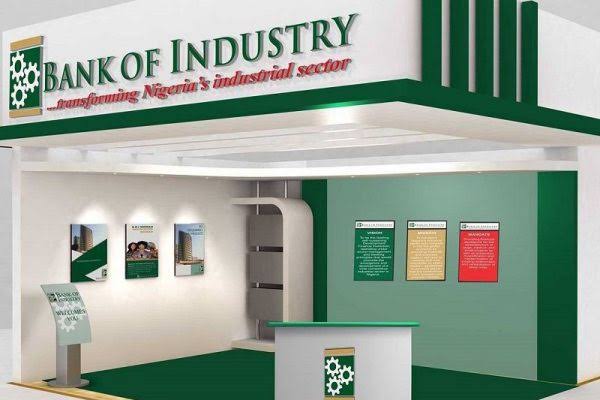The Manufacturers Association of Nigeria (MAN) has expressed deeply felt concern and worry about the continued decision of the Central Bank of Nigeria (CBN) to maintain the Monetary Policy Rate (MPR) at 27.5 percent since November 2024.
The association said that it “is perturbed that when most progressive economies are charting a course toward industrial recovery and macroeconomic stability, Nigeria’s monetary stance tends to lead us in a different direction.”
According to MAN, countries such as members of the Euro Area, the United Kingdom, Denmark, Australia, China, India, Thailand and Egypt, have implemented interest rate cuts to bolster economic growth and support productive sectors.
Reacting to the central bank’s decision to retain the Monetary Policy Rate at 27.50 per cent, the Director General of MAN, Mr. Segun Ajayi-Kadir, said today that “a nation cannot industrialise on the back of prohibitively expensive credit.
“With the benchmark interest rate held at 27.5 per cent, Nigeria has become the 6th most expensive country to source credit as local manufacturers grapple with an average lending rate of over 37 percent.
He said that this policy posture is not only inflationary, but is suffocating the capacity of the manufacturing sector and compounded by other limiting factors, so much that “our members—small, medium and even large-scale—are finding it increasingly difficult to stay afloat, expand production lines, or even meet basic operational costs.”
He said: “When credit is priced highly, production declines and the nation ‘imports poverty.’
“Our concerns go beyond the debilitating impact on our numbers business. The “Nigeria First Policy”, which seeks to strengthen local industry and reduce import dependence, may be under severe threat. At the heart of its successful implementation lies access to affordable financing to boost capacity utilisation.
“Unfortunately, the current interest rate regime constrains finance costs for our members, surging by over 44 percent from ₦1.43 trillion in 2023 to ₦2.06 trillion in 2024 and rising.
“This represents a sharp increase that has directly depressed productivity and led to underutilization of industrial capacity.”
The manufacturers’ association said that the high cost of credit has not only diminished the flow of investments into the manufacturing sector but has also dulled the return on existing investments, with Small and Medium Industries hit the hardest.
Also, confidence in the industrial outlook has waned, as evident in the dip in the Manufacturers CEO’s Confidence Index from 50.7 points to 48.3 points. This mirrors the growing anxiety of our manufacturers.
According to Ajayi-Kadir, “a nation that woos foreign portfolio investors at the expense of its real sector may unwittingly be aspiring to build prosperity on the back of volatility.
“We are disturbed by the implicit prioritisation of short-term foreign capital inflows over the long-term health of domestic industries.
“While maintaining a high interest rate of 27.5 percent may temporarily attract speculative foreign portfolio investors, it is doing so at the expense of Nigeria’s manufacturing base, which is now choked by unsustainable borrowing costs.”
He said that what is evident now is the widening profitability of the banking sector that is buoyed by elevated interest margins while manufacturers contend with shrinking margins, rising debts and declining productivity.
“This is an economic paradox that must be urgently addressed. The current monetary policy trajectory risks turning banks into vaults of idle wealth, while the real economy—where jobs are created and value is added—faces suffocation.
“A society that rewards intermediaries over producers invites long-term decline,” he warned.
He added: “Access to affordable credit is the oxygen that sustains industrial growth and no economy has ever grown by starving its manufacturers of oxygen.”
He said that recent disinflationary trends have provided justification for the CBN to cut rates as real interest rates have improved and are already giving financial investors higher inflation-adjusted returns.
“Therefore, maintaining a high nominal interest rate under current inflation conditions is neither necessary nor justifiable, and will only prolong the pain for manufacturers and consumers alike,” he argued.
In light of the above, MAN called on the CBN to cut the benchmark interest rate significantly to reflect current realities and ease the credit burden on manufacturers as well as deploying moral suasion and policy incentives for commercial banks to facilitate single-digit, concessionary interest rates to the manufacturing sector.
It also urged the CBN to facilitate the approval of the ₦1 trillion earmarked for manufacturers under the Stabilization Plan to support industries struggling under current financial pressures.
MAN also called on the CBN to settle the outstanding $2.4 billion Forex Forward Contracts to restore manufacturers’ confidence and end the unprecedented decapitation of the financial viability of the affected industries.
This will also improve access to non-locally available raw materials.
MAN also warned that industrial confidence is a fragile currency and once broken, it takes time to rebuild.
“Nigeria cannot afford to lose its manufacturing momentum at a time when the world is repositioning for the next wave of industrial transformation.
“The commendable reform measures of this administration may not be helped by the persistent high cost and constrained access to funds.
“The current monetary policy is not only undermining manufacturers’ confidence but also jeopardizing national economic resilience.
“We urge the Central Bank to act decisively and in synergy with the fiscal authority to ensure that Nigeria’s manufacturing sector does not sink deeper into stagnation. The time to act is now,” said Ajayi-Kadir.





